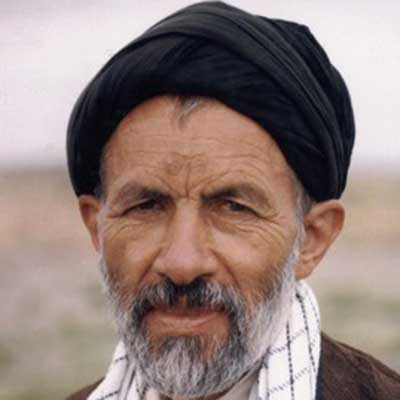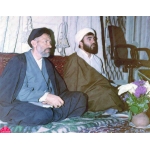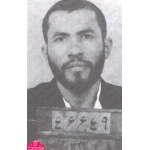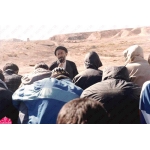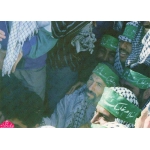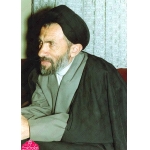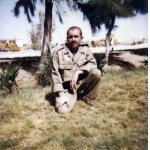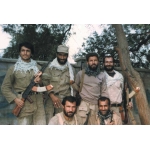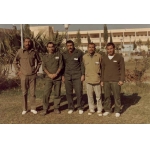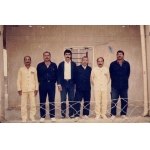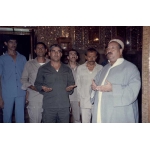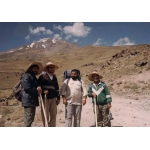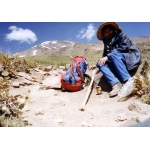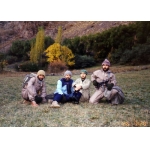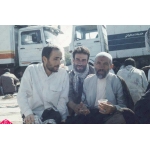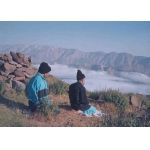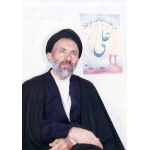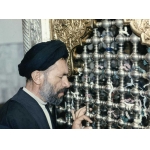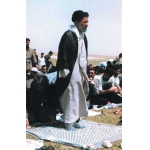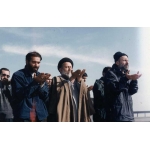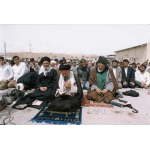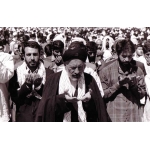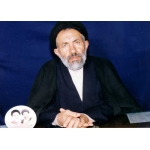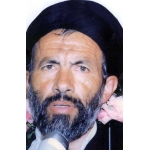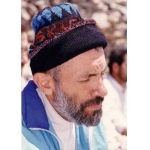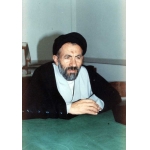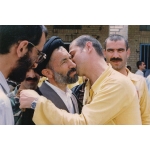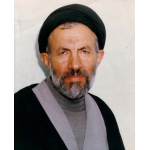Aboutorabi Fard, Ali Akbar
Masoumeh Abedini
502 بازدید
Hojatoleslam Seyyed Ali Akbar Aboutorabi Fard (1939-2000) was an Iranian revolutionary known as “Seyyed-e Azadegan” who spent ten years in captivity.
Seyyed Ali Akbar Aboutorabi Fard was born in 1939 in Qazvin. However, his birth certificate was issued in Tayeqan, Markazi Province.[1]
Aboutorabi obtained his diploma in Mathematics from Hakim Nezami High School in Qom. Since his father was a cleric, he encouraged him to pursue religious studies as well.[2] He continued studying in the seminaries of Mashhad, Qom, and Najaf. He was a diligent student and for a time attended the classes of Imam Khomeini (ra).[3]
June 5, 1963, marked the beginning of Aboutorabi’s political activities against the Pahlavi regime. He left Iran for Najaf where later on Imam Khomeini (ra) was sent into exile.[4]
In 1967, after getting married to a girl from the Muhammadzadeh (Sediqi) family, who were merchants in Tehran's bazaar, Aboutorabi and his wife moved to Najaf.[5] In 1970, while returning from Najaf to Iran, he was arrested for carrying a large number of Imam Khomeini’s leaflets and was sentenced to six months in prison. After release, he went to Qom, and due to his connections in Tehran and Qom with Seyyed Ali Andarzgoo, SAVAK was watching all his activities.[6] His political struggles were coupled with studying and teaching.
During the Islamic Revolution, he was commander of a group of people who controlled Sadabad Palace and protected the facility in the palace until delivered to competent authorities.[7] He also played an important role in seizing the Qazvin Army garrison and preventing any movement of weapons and war equipment out of the facility.[8]
Later on, Aboutorabi focused his activities on Qazvin and became the director of the first Islamic Revolution Committee of Qazvin. After a while, he undertook the presidency of the City Council.[9] During the Iran-Iraq War, he accompanied Dr. Mustafa Chamran in Irregular Warfare Headquarters to organize the forces.
In the early months of the war, he participated in an operation planned to recapture an area known as Allah-Akbar Heights located in the southern part of the country. On December 17, 1980, while returning from a reconnaissance mission, Aboutorabi along with three others was identified and captured by enemy forces. At first, it was rumored in Iran that he had been martyred. This is reflected in Dr. Chamran’s words praising Aboutorabi’s noble character: "I testify that Seyyed Ali Akbar Aboutorabi Fard with all his might fought for the sake of God, the promotion of Islam, and the victory of the Revolution until his last breath...".
Describing the early days of his captivity Aboutorabi says: "Several times in jail they took me to the gallows and counted 1 and 2 for extracting confessions but each time they took me back. During the day, they brought me to the same place several times. Eventually, at night they took me to Al-Amareh school. An Iraqi general told those who were there: keep him awake; we come back at midnight to extract confessions, if he did not have enough information, we would nail his head. They came back at midnight and nailed my head, but it was not such a hit to die".
Despite all the inhuman treatments and tortures Aboutorabi went through in Iraqi camps and prisons, he showed such determination and firm belief that even Iraqi soldiers were impressed by his personality. He acted as a wise father and leader for the Iranian war captives in Iraq. His management and leadership in the Iraqi camps were well-known among all Iranian captives.
Among his activities during ten years of captivity were the formation of cultural groups, holding educational classes, delivering speeches on various occasions including the months of Muharram and Safar, explaining the teachings of the book Nahj al-Balagha, interpreting some ethical verses of the Holy Quran, and encouraging his fellow captives to stay physically healthy.
On March 3, 1985, Aboutorabi became the senior of the camp and played a significant role in maintaining peace in that place. In addition, he would encourage the captives to engage in sports and artistic activities. His activities worried the Baathists, and therefore on May 22, 1985, he was exiled to Baghdad. However, nineteen days later, he was returned to the camp. From the beginning of his arrival at the camp, Aboutorabi encouraged the other captives to learn foreign languages. From that year, he designated Thursdays as the day of "reunion". Honoring the hardworking individuals in the camp was also among the programs occasionally conducted. Subsequently, the Iraqis ordered him to work in the kitchen. During this period, despite the limitation of food supplies, he managed to prepare suitable and decent meals. After the demise of Imam Khomeini (ra), he managed to convince the camp authorities to hold a ceremony in his honor.
After his release from captivity in the summer of 1990, Seyyed Ali Akbar Aboutorabi Fard was appointed as the representative of the Supreme Leader in Azadegan (released war captives) Affairs Headquarters. Also, he was the second and third representative of Tehran in the fourth and fifth sessions of the Islamic Consultative Assembly respectively.
On June 2, 2000, Aboutorabi alongside his father Haj Seyyed Abbas Aboutorabi Fard, died in a car crash, when they were on their way to Mashhad. After the incident, the people of Tehran, Qom, and Qazvin asked the authorities to bury them in their respective cities. However, according to his will, Aboutorabi and his father were eventually buried in the holy shrine of Imam Reza (as).[10]
[1] Qobadi, Mohammad, Pasiad pesaran khak (sons of soil), Tehran: Surah Mehr, 2008, p. 443.
[2] Ibid., p 44.
[3] Ibid., p 78.
[4] Ibid., pp 74-75.
[5] Ibid., pp 80-81
[6] Ibid., pp 89-90
[7] Ibid., p 152
[8] Ibid., p 152
[9] Ibid., pp 158-159
[10] A summary of an article published in the Sacred Defense Encyclopedia, Vol. 1, Tehran, The Center of Encyclopedia of the Sacred Defense Research Institute, 2011, Pp. 276-281.


